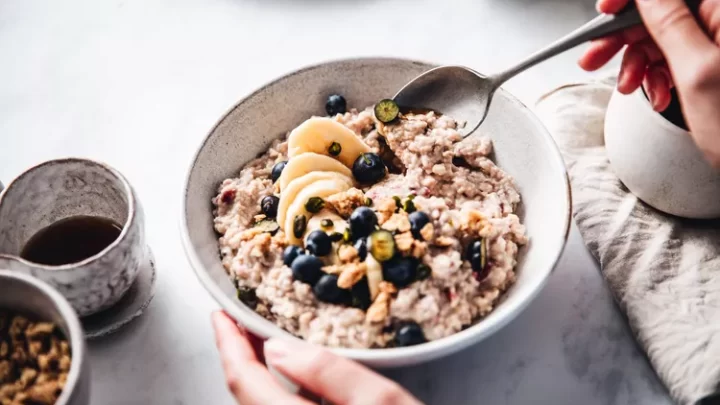You’re not alone if you want for comfort food like oatmeal. And there are valid reasons to incorporate oatmeal in your diet, according to what the study on the subject has to say about its advantages.
In addition to being delicious and cozy, oatmeal is also highly healthy for you and has more uses than you might realize. Here are five good reasons to include oatmeal in your diet, along with some healthy ways to do so—even outside of breakfast.
Half a cup of quick-cooking, dry oats contains approximately:
150 energy
Plant protein in 5 grams
27 grams of carbohydrates
4 grams of fiber for filling
little amounts of fat
Along with a range of vitamins and minerals, oats include lesser levels of iron, magnesium, zinc, selenium, and B vitamins.
Calcium and potassium.1 That’s an impressive vitamin and mineral package for a relatively low-calorie food. This all makes oatmeal a nutrient-dense ingredient.
Polyphenol antioxidants found in oats possess antioxidant and anti-inflammatory properties. At the cellular level, polyphenols have been shown to help fend off aging and disease by reducing oxidative stress.
(Basically, oxidative stress is an imbalance between the production of cell-damaging free radicals and the body’s ability to counter their unwanted effects.
Furthermore, due to their bodyguard-like effects, polyphenols have been linked to protection against heart disease and stroke, as well as type 2 diabetes and obesity.
If you’ve avoided oatmeal due to its carb content, you may be delighted to know that this healthy starch actually supports weight management. A study demonstrated that regular oatmeal consumers score higher on the USDA’s Healthy Eating Index, which is a measure of overall diet quality.






















